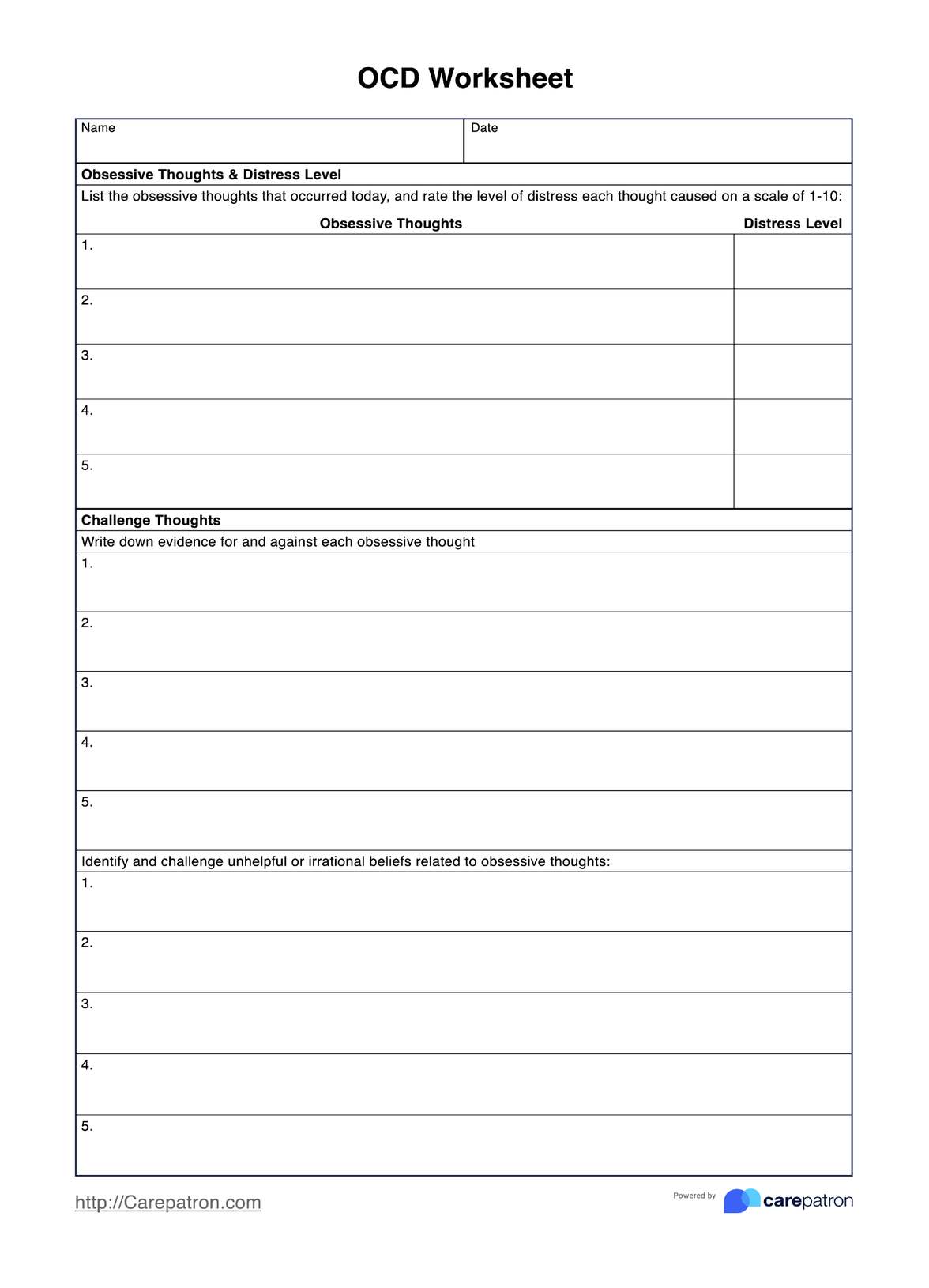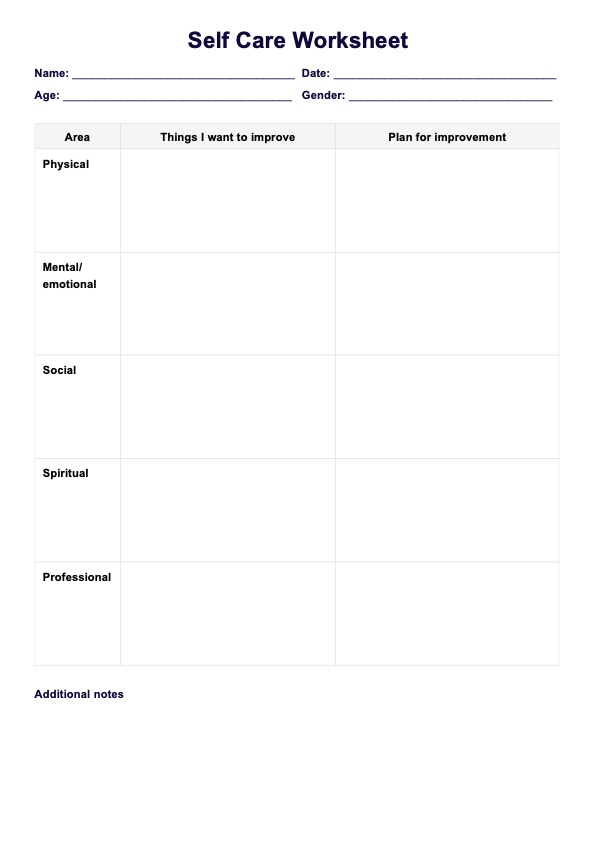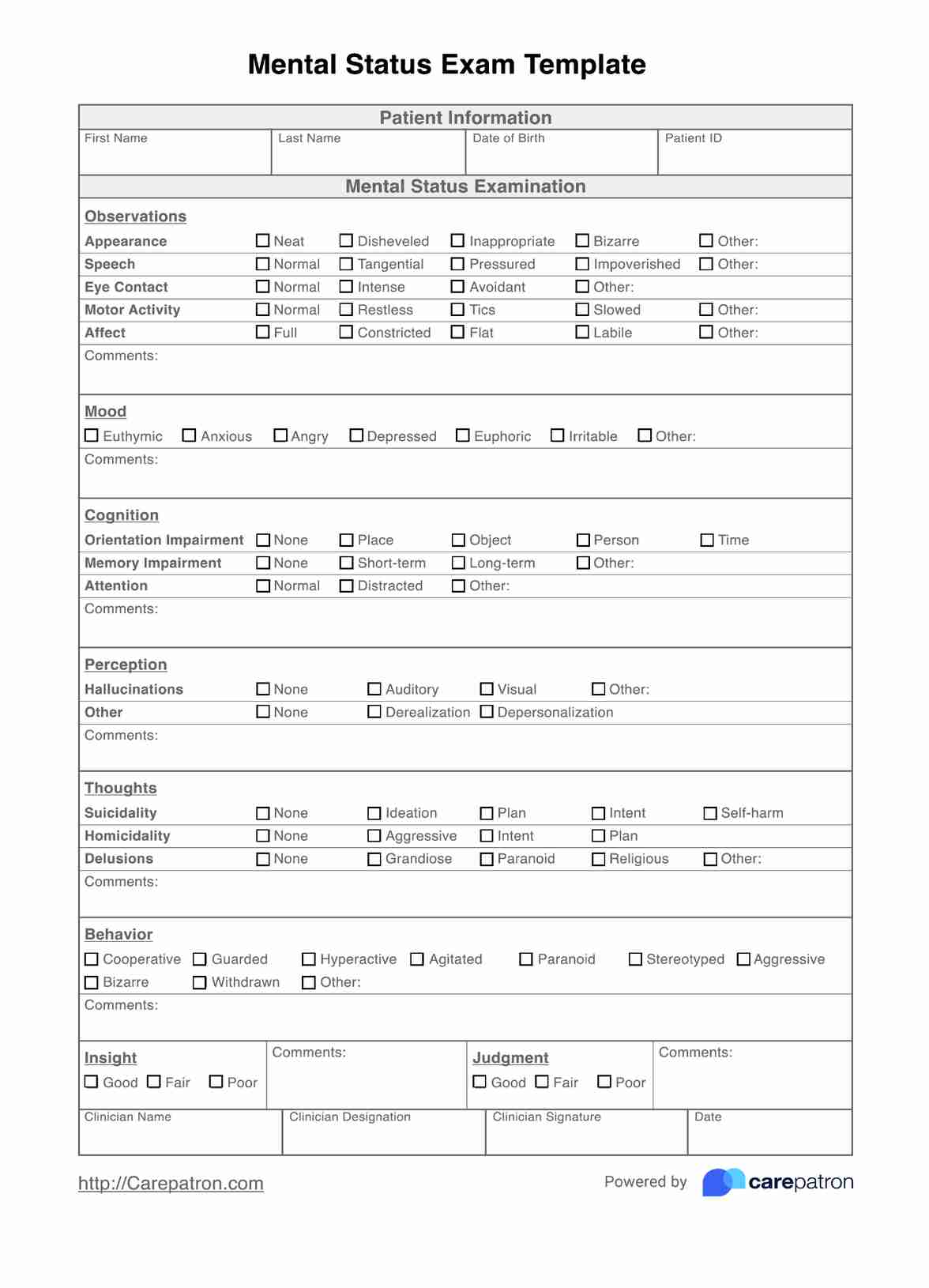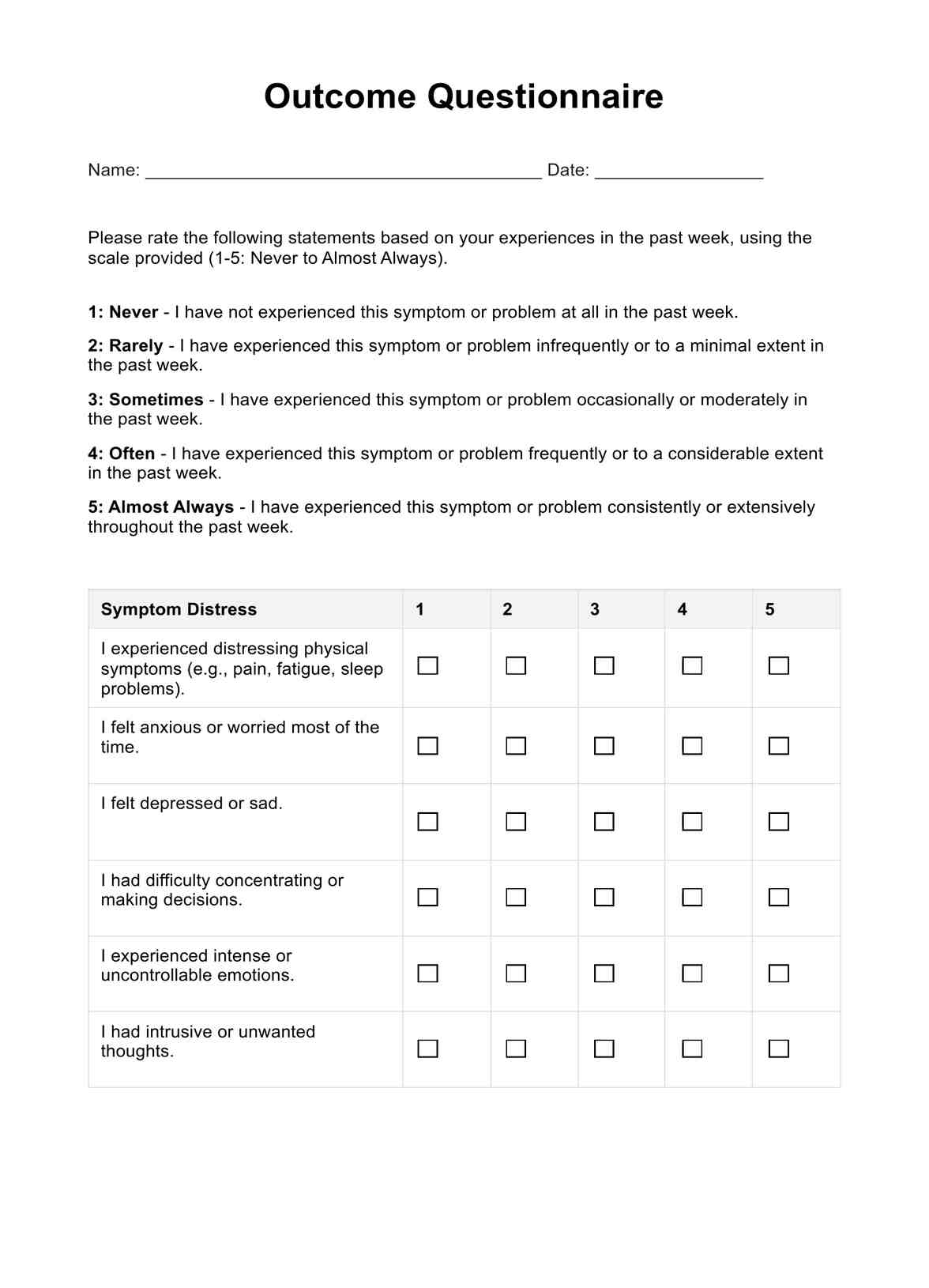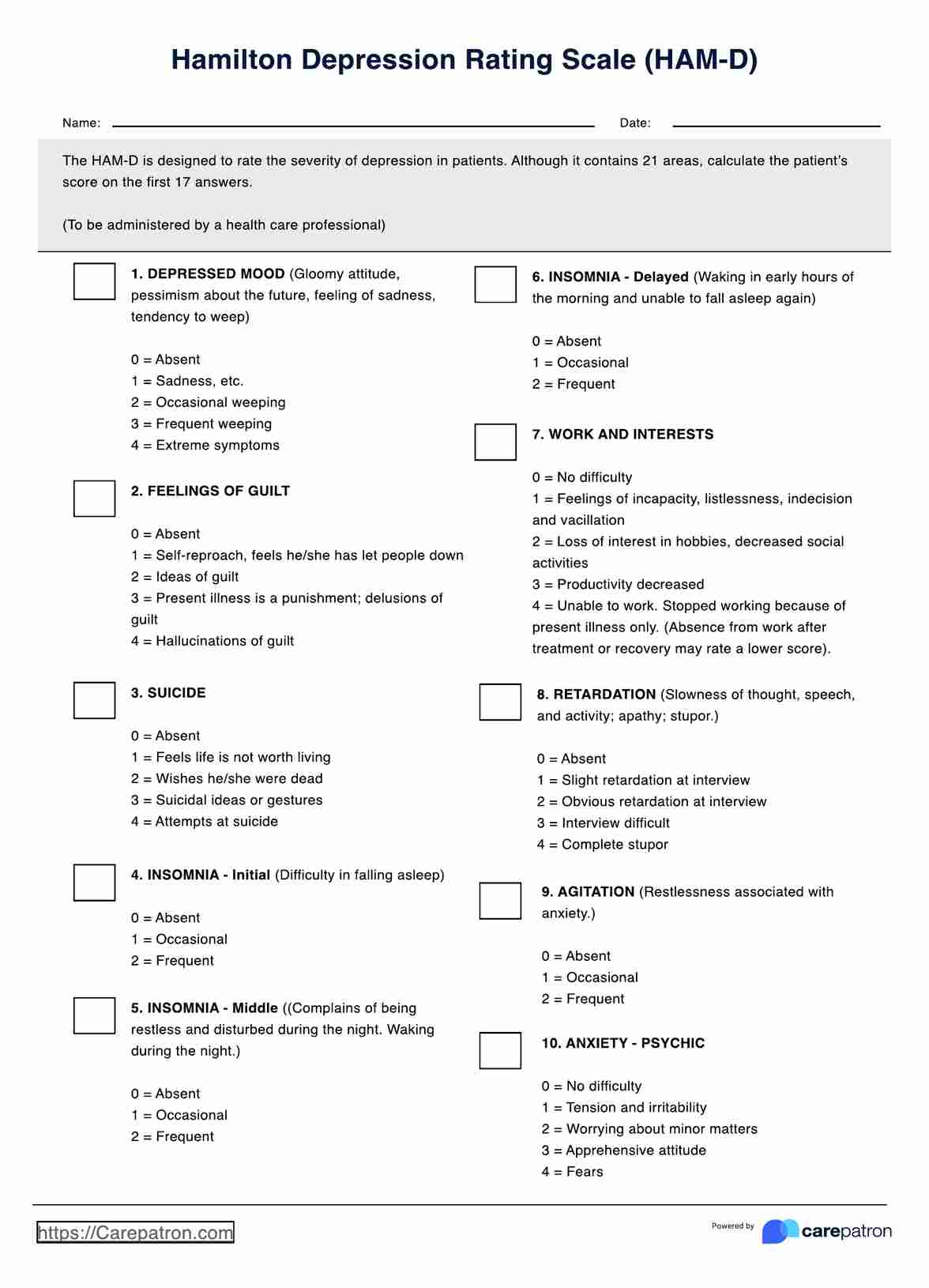Dependent Personality Disorder Treatment Guidelines
Improve treatment planning for dependent personality disorder with our free resource to improve client outcomes.


What is dependent personality disorder?
Dependent personality disorder (DPD) is a mental health condition where individuals have an intense and persistent need for others to take care of their emotional and physical needs. This excessive reliance can lead to significant challenges in relationships, work, and overall well-being. People with DPD often struggle with feelings of helplessness and a crippling fear of abandonment.
Key characteristics of DPD include difficulty making decisions independently, a constant need for reassurance and companionship, and a reluctance to express disagreement for fear of losing support. They may feel uncomfortable or helpless when alone, clinging to others to avoid the overwhelming fear of abandonment.
Diagnosis of DPD involves a thorough clinical assessment by a mental health professional, referencing criteria outlined in the DSM-5. With proper diagnosis and treatment, individuals with DPD can learn to develop greater independence, build healthier relationships, and experience a more fulfilling life.
Symptoms of dependent personality disorder
Here's a closer look at what a client with DPD experiences:
- Core feature: An excessive need to be taken care of, resulting in submissiveness and clinging behavior (American Psychiatric Association, 2013). Individuals with DPD may have difficulty functioning independently and are excessively dependent on others for decision-making, even in everyday situations.
- Behavioral symptoms: Dependent behavior can look like the following symptoms:
- Difficulty starting tasks and making everyday decisions without constant reassurance and approval from others.
- Passive and submissive behavior, often taking on a follower role in relationships.
- An inability to be alone leading to a constant need for companionship.
- Unrealistic expectations of others to take responsibility for their well-being.
- A fear of disagreement or disapproval leading to an unwillingness to express needs or opinions.
- Underlying emotional distress: The fear of abandonment is a central concern for people with DPD. This can lead to intense anxiety, loneliness, and feelings of worthlessness when alone or unsupported.
Understanding DPD is then crucial for providing effective treatment. Through this, mental health professionals can develop a treatment plan that fosters independence and healthy relationships to improve the client's quality of life.
Causes and risk factors
Understanding the risk factors and causes of dependent personality disorder (DPD) allows healthcare practitioners to identify susceptible individuals and tailor treatment approaches. While the precise cause of DPD is yet to be pinpointed, research suggests a blend of developmental, genetic, and environmental factors plays a crucial role:
- Childhood experiences: Studies have indicated that individuals with DPD may have had experiences of neglect, emotional abuse, over-protection, or an insecure attachment to their primary caregivers during their formative years (American Psychiatric Association, 2013). These experiences can contribute to the development of a strong dependency on others, maladaptive personality traits, and a heightened fear of abandonment or separation.
- Biological factors: Certain genetic or neurochemical imbalances may predispose an individual to develop this disorder (Bornstein, 2012). However, it's important to note that these biological factors alone do not necessarily determine the onset of DPD, as environmental and psychosocial factors also play a significant role.
- Cultural norms and social factors: Certain life events and situations may also heighten the risk of developing DPD. Significant losses, such as the death of a loved one or the end of a close relationship, can trigger the onset of dependent behaviors as a coping mechanism. Similarly, major life transitions, such as moving to a new location or starting a new job, and even a life-threatening illness can increase feelings of insecurity and the need for external support.
It's important to remember that these are only risk factors. Increased risk does not mean that everyone who experiences them will develop DPD. However, knowing these potential influences can help understand a patient's background and tailor treatment accordingly.
Dependent Personality Disorder Treatment Guidelines Template
Dependent Personality Disorder Treatment Guidelines Example
Dependent Personality Disorder Treatment Guidelines
Dependent personality disorder (DPD) can be a challenging condition to manage, but with the right approach, significant progress can be made. This guide outlines vital treatment considerations for healthcare professionals working with individuals with DPD and is based on the MSD Manual for Dependent Personality Disorder (Zimmerman, 2023).
Introduction
A firm diagnosis is pivotal for tailor-made DPD treatment. Mostly based on the DSM-5 diagnostic criteria, an in-depth clinical interview and validated tools such as the Structured Clinical Interview for DSM-5 (SCID-5) can help accurately diagnose the disorder.
General principles for the treatment of personality disorders
This section outlines the four main goals of treatment options, which include reducing subjective distress and enabling patients to recognize internal problems. Our guidelines also discuss decreasing maladaptive and undesirable behaviors and modifying problematic personality traits.
Evidence-based treatment approaches
This section covers the primary evidence-based interventions for DPD, which include:
- Psychotherapy: This focuses on cognitive-behavioral therapy (CBT) and psychodynamic therapy as the main psychotherapeutic approaches.
- Medication: This section discusses the role of medications, such as antidepressants and anti-anxiety drugs, in addressing co-occurring conditions.
- Supportive interventions: This part highlights the importance of various supportive measures, such as psychoeducation, family/group therapy, and social skills training.
Treatment guidelines provide a comprehensive framework to implement a holistic approach to treating Dependent Personality Disorder. This highlights the importance of addressing both the symptoms and the underlying personality traits to achieve meaningful and lasting improvements for individuals affected by this condition.
Benefits of having treatment guidelines
When it comes to treating individuals with Dependent Personality Disorder (DPD), having a well-developed set of treatment guidelines can be beneficial for a mental health professional in the following ways:
- Standardized care: Treatment guidelines provide a consistent and evidence-based approach to treating personality disorders. This reduces the risk of overlooking crucial aspects of care and promotes a more uniform standard for managing the condition.
- Improved treatment outcomes: Treatment guidelines outline effective interventions like psychodynamic psychotherapy and medication options, which help healthcare providers tailor a plan with a higher probability of success. This translates to being able to manage symptoms more effectively and improve the quality of life for patients.
- Reduced treatment variation: Without clear guidelines, treatment approaches for DPD might vary significantly between providers. This can be confusing for patients and potentially lead to less effective interventions.
- Enhanced communication: Treatment guidelines provide a common language for healthcare professionals to discuss and plan care for individuals with DPD. This fosters better communication between providers, including therapists, psychiatrists, and case managers, for a more cohesive treatment approach.
Common treatments for dependent personality disorder (DPD)
Individuals struggling with Dependent Personality Disorder (DPD) can benefit from a range of evidence-based treatment approaches. While the specific interventions may vary based on the client's unique needs and circumstances, several common strategies help treat dependent personality disorder. These include the following:
Cognitive behavioral therapy (CBT)
CBT is a widely used and well-researched approach for treating DPD. This therapy focuses on identifying and modifying the maladaptive thoughts, beliefs, and behaviors that contribute to the individual's dependency and lack of autonomy. Challenging irrational thought patterns and developing adaptive coping strategies help clients become more self-reliant and resilient.
Psychodynamic therapy
Psychodynamic therapy explores the unconscious factors and early attachment experiences that may have contributed to the development of DPD. This approach helps clients gain insight into the root causes of their dependency, process unresolved emotional conflicts, and develop a stronger sense of self.
Interpersonal therapy (IPT)
IPT concentrates on improving the client's interpersonal skills and relationships, which are often a central concern for individuals with DPD. This therapy aims to help clients build healthier communication patterns, set appropriate boundaries, and develop more balanced and mutually supportive relationships.
Group therapy
Group therapy can be a valuable complement to individual treatment for DPD. In a supportive group setting, clients can learn from the experiences of others, practice assertiveness, and receive feedback on their interpersonal behaviors.
Family therapy
In some cases, involving family members or significant others in the treatment process can be beneficial. Family therapy can help address relationship dynamics, improve communication, and foster a more supportive environment for the client's recovery.
Medication management
While medication is not a primary treatment for DPD, it may be prescribed to address any co-occurring other mental health conditions, such as depression or anxiety. Antidepressants, mood stabilizers, or anti-anxiety medications can be used in conjunction with psychotherapy to provide a more comprehensive approach to treatment.
Occupational therapy
Occupational therapy can be crucial in helping individuals with DPD develop the practical skills and self-confidence needed to function independently in their daily lives. This may include training in problem-solving, time management, and daily living tasks.


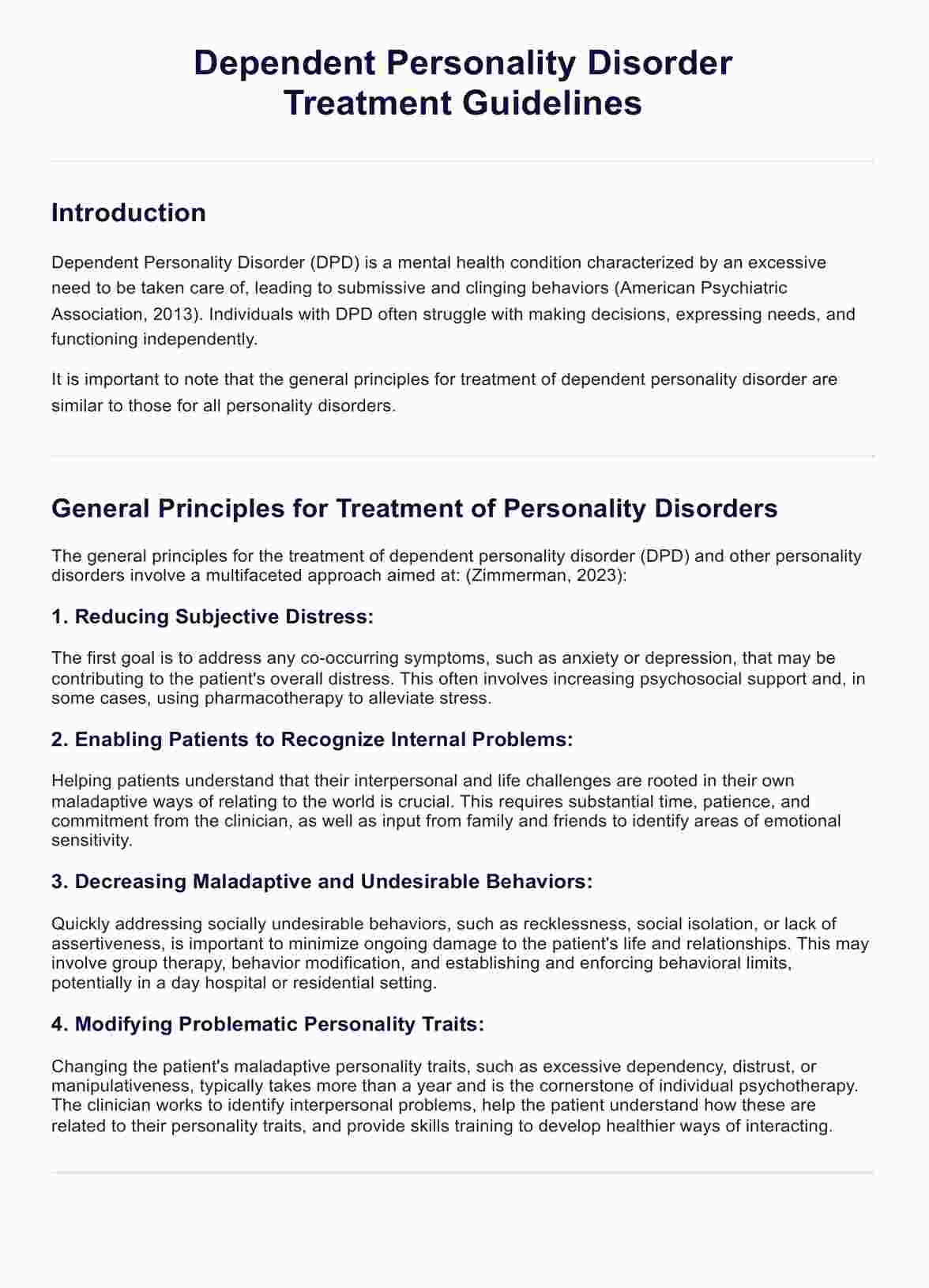
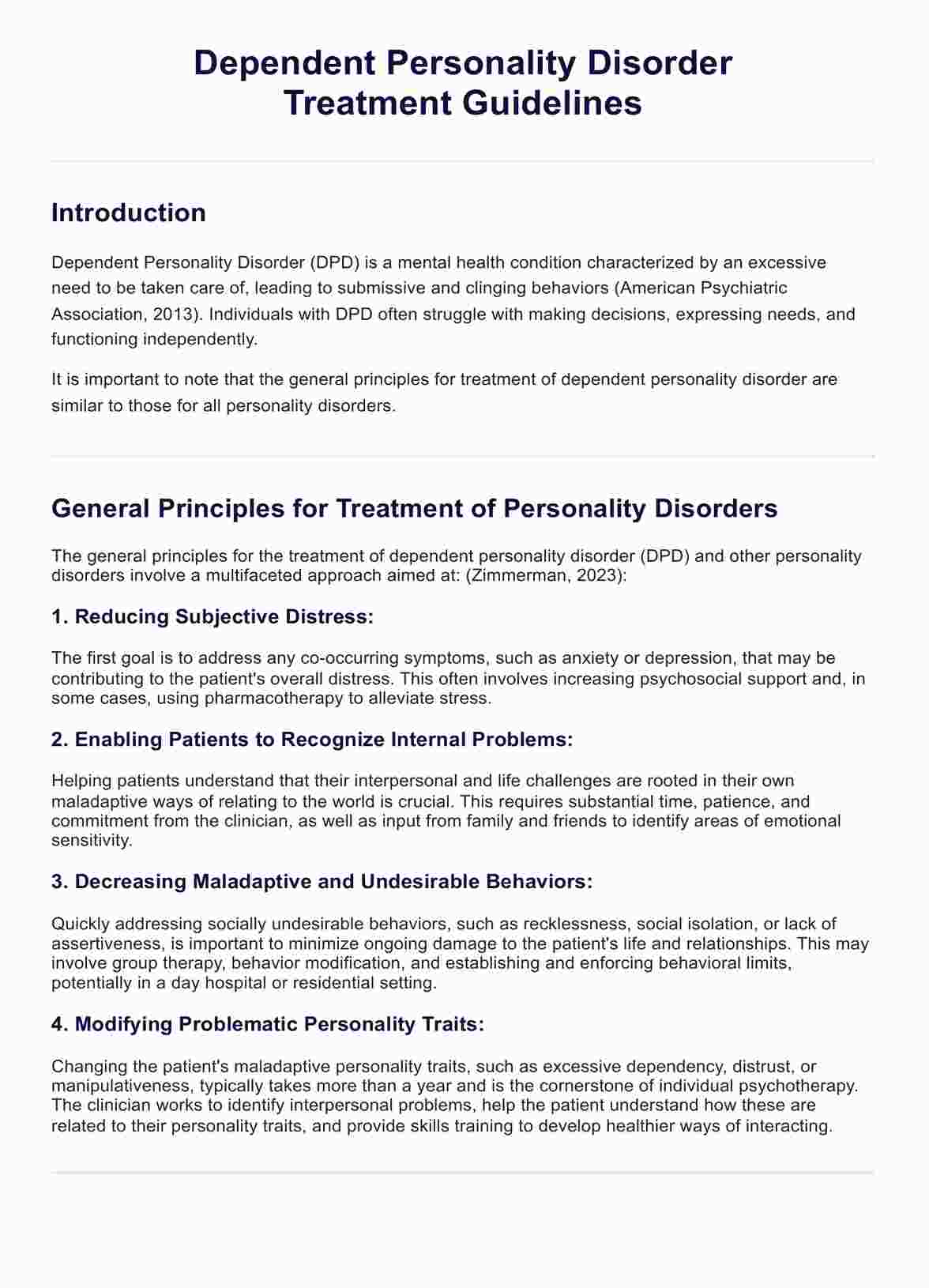

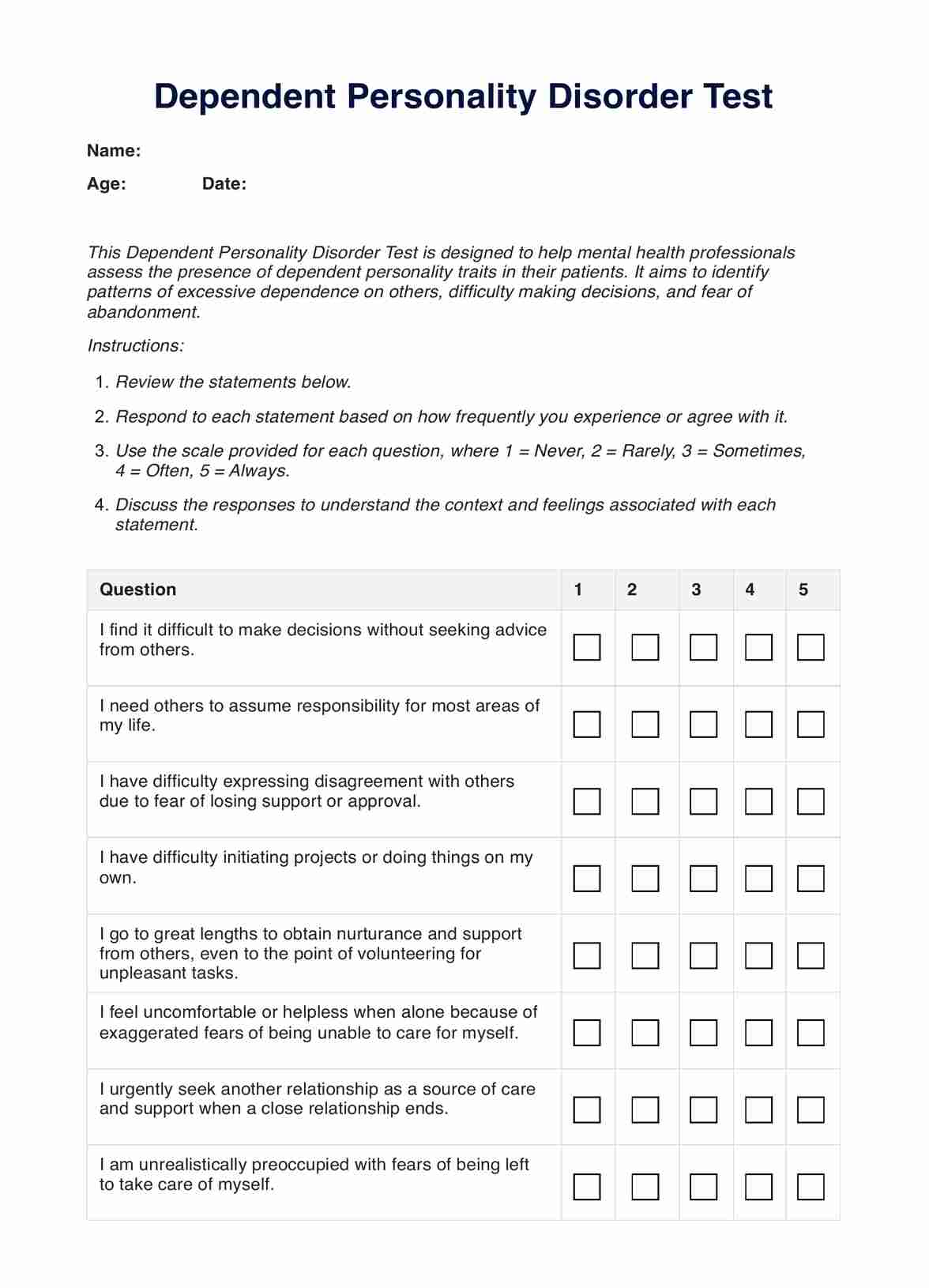


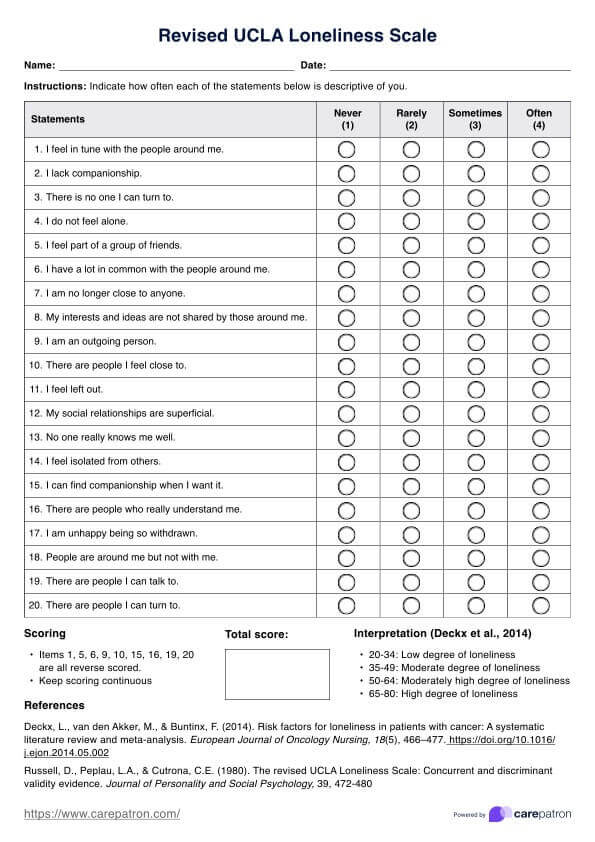












-template.jpg)





















































































